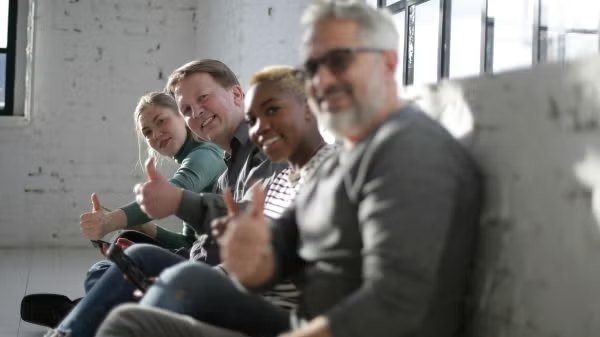ASU psychology center aims to help children and adolescents improve mental health

In 2021, 44% of high school students report experiencing persistent feelings of sadness or hopelessness, and 37% reporting experiencing poor mental health during the pandemic, according to the CDC. Photo by Kevin Schmid/Unsplash
According to the Centers for Disease Control and Prevention, more than 1 in 3 high school students experienced persistent feelings of sadness or hopelessness in 2019, a 40% increase since 2009. In 2021, those numbers continued to rise, with 44% of high school students reporting experiencing persistent sadness, and 37% reporting experiencing poor mental health during the pandemic.
“These data echo a cry for help,” Acting Principal Deputy Director Debra Houry in the CDC release.
The Clinical Psychology Center at Arizona State University is doing something about it. The center is now providing services to help families deal with this crisis and is accepting patients for in-person and telehealth treatment. These individual and family therapy options are designed specifically to help children and adolescents cope and build positive skills for the future.
Services in the Clinical Psychology Center are provided by doctoral student therapists under the supervision of licensed clinical psychologists. The clinic provides a safe and accepting environment and a collaborative experience with active participation from youth and families. Clients work together with the therapist to identify goals in treatment, learn coping skills that could help with the presenting problems, and to practice these skills in between sessions as clients live their life.
Poor mental health in youth and adolescents is associated with negative physical health and behaviors like drug use, risky sexual activity and decision-making, and poorer grades at school. With the added stress of schools in many districts starting right now, it is important to take stock of what can be done to improve youth mental health.
One of the many challenges with dealing with adolescent mental health is that parents are often excluded and communication suffers. The student may isolate themselves, and the parent might not know what to do. The clinic teaches key skills to both the parents and the students in order to remedy this communication breakdown.
“With low-cost, effective treatments available to address problems that present increased risk for later diagnoses, this is an excellent opportunity for parents to take advantage of our limited openings for evaluations and therapy,” said John Barton, director of the Clinical Psychology Center.
The center was established in 1959 as an outpatient clinic and training facility for doctoral students in clinical psychology, and its mission is to provide outstanding service to its clients using evidence-based best practices, or treatment methods that have been tested and proven to work.
Therapy is available to children, adolescents and adults for a broad range of problems, including anxiety, depression, family problems, stress, child behavior problems, relationship problems, anger issues, ADHD, sleep disorders and adjustment to chronic health problems. Student therapists will teach strategies from evidence-based treatment modalities such as cognitive behavioral therapy (CBT), dialectical behavior therapy (DBT), motivational interviewing, acceptance and commitment therapy (ACT) and parent management training (PMT). Fees are determined on a sliding-scale basis that takes an individual's income and family size into consideration.
To get started, new clients can start the process by calling 480-965-7296 or by filling out an interest form.
More Science and technology
Statewide initiative to speed transfer of ASU lab research to marketplace
A new initiative will help speed the time it takes for groundbreaking biomedical research at Arizona’s three public universities…

ASU research seeks solutions to challenges faced by middle-aged adults
Adults in midlife comprise a large percentage of the country’s population — 24 percent of Arizonans are between 45 and 65 years…

ASU research helps prevent substance abuse, mental health problems and more
Smoking rates among teenagers today are much lower than they were a generation ago, decreasing from 36% in the late 1990s to…

